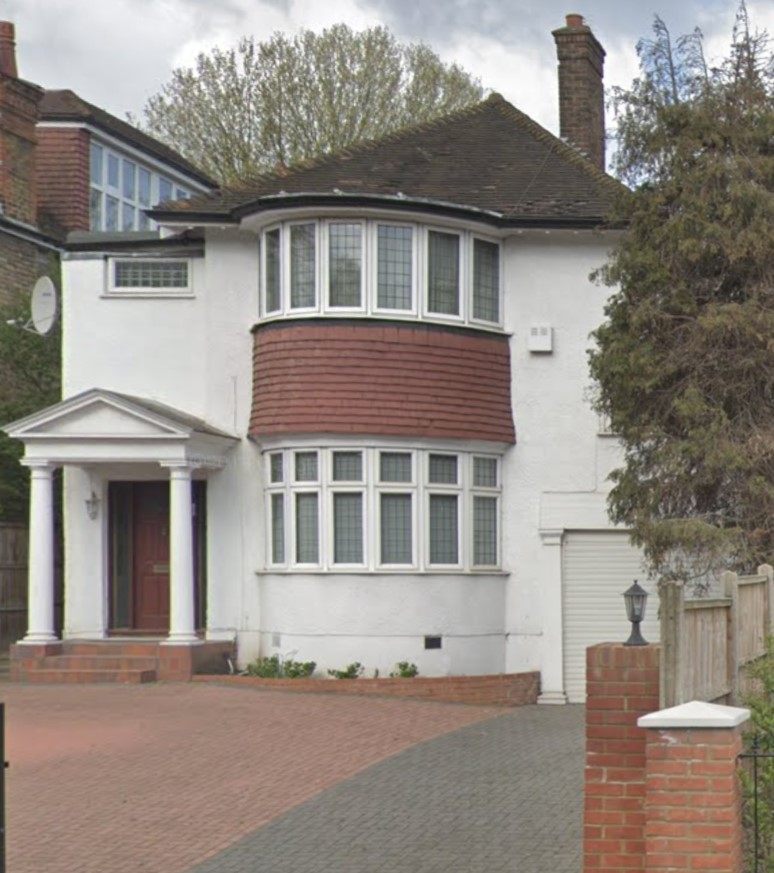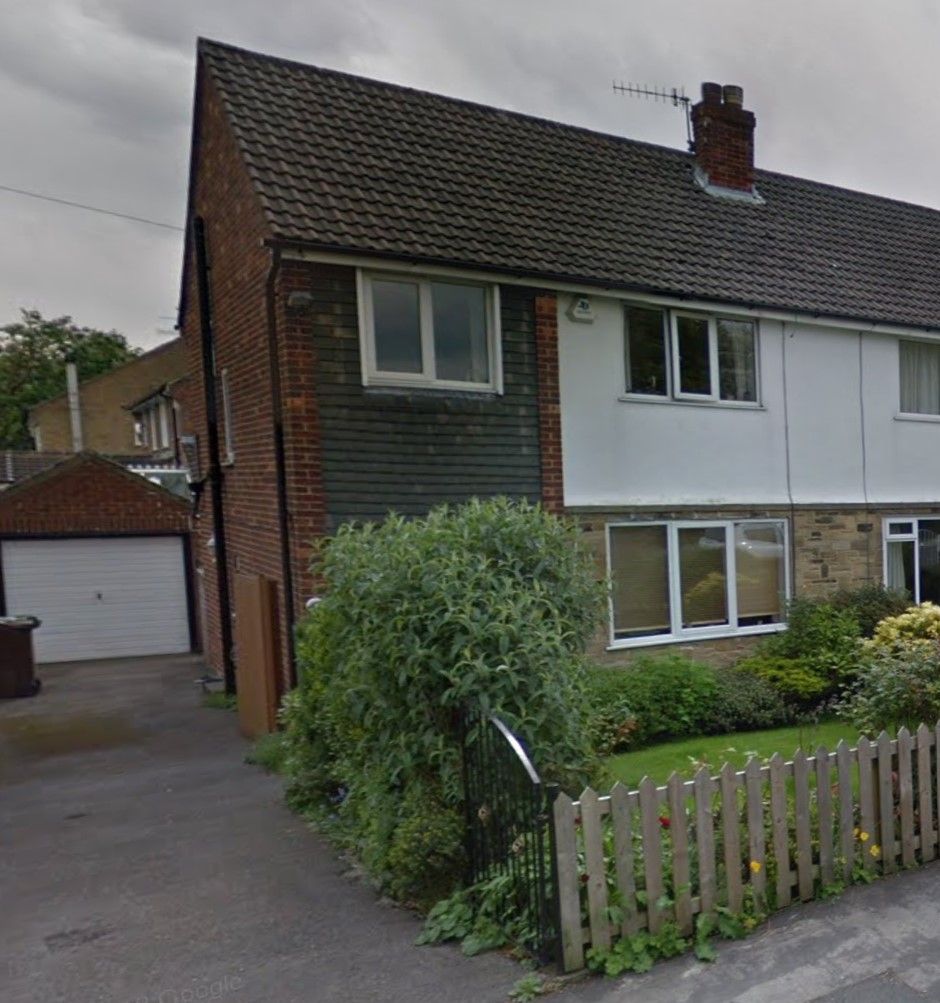
- Remove tax-free cash from your house with Equity release joint ownership
- No regular monthly payments
- Help your family with the money you release
- Stay living in your own house
- Fixed rate 5.43%
- Rates have gone down in 2026
Loan-to-value for equity release?
You can borrow 60% of your property’s value. For example, if your home is worth £240000, you can get £144000.


I got an equity release to give money to my daughter to buy a house. Without the money I borrowed, her buying a home would have been impossible.

Sophie G from Aberdeen
The financial advisor I’ve had for 25 years said I could save inheritance tax by getting £350,000 of equity release. The money was lent at a very low interest rate, close to 5.19%, and was competitive with standard mortgages you would get by proving income. I have saved a lot of tax.

William from London
My lawyer told me my inheritance tax bill would be around £250,000. I got a lifetime mortgage to give money to my son and daughter so they could buy bigger homes, and we bought a house in the south of France for us all to use as a holiday home.

Mrs E from London
My mortgage needed to be repaid to the existing lender. I thought I was going to lose my house. Thanks to Concise I got an equity release to pay off my mortgage.

Julia A
My mother has dementia. With my solicitor and my power of attorney, I obtained equity release on my mother’s house to pay for specialist modifications to improve her comfort.

David P
With my power of attorney, I got equity release on my father’s house to pay for disability provisions, including a lift and a new kitchen.

Mr G from Kent
I took out an interest-only lifetime mortgage and gave my sons £100,000 each to put down as a deposit on a home. My money made it possible for them to get an excellent mortgage deal, especially one son who is not well paid.

Mrs Daly from Glasgow
My daughter lives in the States and does not have health insurance. My £30,000 lifetime mortgage paid the medical bills for her son to be born and a year’s rent in advance for a new flat for the baby.

Mrs E from London
I was advised to take out an equity release on my East London home to minimise inheritance tax. My son and daughter used the money to pay down their mortgages. The interest rate on the equity release was so low that it was close to their mortgage rate.

Mrs G from Leeds
My daughter is a single mother, and I got a £120,000 lifetime mortgage to buy her a flat outright as she has had a succession of poorly maintained rental flats not suitable for her child.

Mrs L from Nottingham
I had to pay a valuation fee and a solicitor’s fee, but no lender or broker fees for my lifetime mortgage. As I was divorcing my husband of 30 years, the money went to him for his share of the house. I am happy now as I am secure, and I do not need to move from my home.





The 1st and 2nd charge lender will want to know if the property is a Detached freehold house or a Leasehold flat and if the resident is an AST Tenant.
It’s usual to encounter people looking for lump-sum lifetime mortgages, monthly-payment lifetime mortgages, or home reversion plans; however, Aviva, like The Exeter Equity Release, is keen to see paperwork showing your personal circumstances, such as bank statements.
Lenders for UK Equity Release
- Key Retirement
- Liverpool Victoria
- Legal and General
Popular loan-to-value percentage ratios of Liverpool Victoria mortgages for people over 50, More to life later life borrowing schemes over 55, OneFamily lifetime mortgages for over 60s, Yorkshire Bank pensioner mortgages over 60, Metro Bank later life interest only mortgages over 75 and Sun Life interest-only retirement mortgages for over 70s are 40%, 55% and 65%.
Do Teachers Building Society have positive reviews for equity release?
Yes, Teachers Building Society reviews are commendable for equity release.
- Progressive Building Society Over 60 Mortgage
- Mortgages For 60 Plus
- Nationwide Equity Release Interest Rates
- Mortgages For Pensioners Over 70
- Coventry Building Society Pensioner Mortgage
- Mortgage Age Limit Nationwide
- Loans For Pensioners UK
- Gloucester Bank Interest Only Lifetime Mortgage Broker
- High Rise Flat Equity Loan
- Nationwide Retirement Mortgage Home
- Natwest Retirement Mortgage Interest Only
- YBS Lifetime Mortgage Drawdown Scheme
- London Equity Release House
- Skipton Building Society Lifetime Mortgage
- Equity Release Northern Ireland Interest Only
- Interest Rates Equity Release Providers
- Equity Release Belfast Interest Only
- Steel Mill
- Halifax Equity Release From Property
- Beverley Bs Equity Release Interest Rates
- Key Advice Lifetime Interest Only Mortgage Bad Credit
- Royal Bank of Scotland Interest Only Lifetime Mortgage Age
- Land Lifetime Mortgage
- Mortgages For 70 Year Olds
- Thatched Roof Cost
- Lifetime Mortgage For Purchase
- Can I Get A Mortgage At 55
- Mortgage Over 65
- Chorley Bs Equity Release
- Short Leasehold Over 65 Mortgage
- Harpenden Building Society Over 75 Mortgage
- Interest Only Lifetime Mortgage Property With Land
- Hanley Economic Building Society Over 60 Mortgage
- Can I Use A Lifetime Mortgage To Buy A House
- Edinburgh Equity Loan
- Best Mortgages For Over 50s Retirement Mortgage Interest Only
- Ipswich Building Society Over 50 Mortgage
- Newbury Building Society Interest Only Lifetime Mortgage
- Cheap Studio Flats
- Yorkshire Bank Equity Loan
- Canada Life Buy To Let Equity Release
- Key Retirement Pensioner Mortgage
- Tipton And Coseley Building Society
- Yorkshire Building Society Construction
- No Credit Check Equity Loan
- Leek United Building Society Over 75 Mortgage
- Santander Retirement Mortgage
- Post Office Mortgage Rates 2025
- Barclays Retirement Interest Only Mortgage Home Reversion Plan
- Furness Building Society Over 55 Mortgage

Some of the most popular loans to values of Lloyds Bank later life borrowing schemes over 55, Barclays Bank interest-only mortgages for people over 60, Post Office over 60 mortgages, L&G pensioner mortgages over the 70s, Royal Bank of Scotland over 60 lifetime mortgages and Nationwide Building Society RIO mortgages over 75 are 40%, 60% and 65%.
What are the current Teachers Building Society rates for equity release?
Teachers Building Society rates for equity release are 5.08% APR.

Downsides of Lifetime Mortgages
A monthly payment lifetime mortgage can reduce your estate value. Home reversion schemes may impact the ability to claim entitlements. You may need to pay a broker’s fee and you could be exposed to changes in interest rates with some products.
- Aviva Equity Release Schemes
- More to life Flexi Choice Voluntary Payment Super Lite
- Royal Bank of Scotland Equity Release Schemes
- Aviva Lifetime Mortgages for Pensioners
- Bridgewater Equity Release
- L&G Legal & General Flexible Lifetime Mortgage
- Liverpool Victoria LV Equity Release Schemes
- Nationwide Equity Release
- Equity Release Schemes
- Just retirement equity release key features
- L&G Legal & General Flexi Max Voluntary Repayment Plan
- Equity Release Schemes
- Royal Bank of Scotland Lifetime Mortgage
- Bridgewater Equity Release Plans
- Canada Life Landlord Voluntary Select Plan
- More to Life Tailored Choice Plan
- Nationwide Equity Release Schemes
- Lifetime Mortgage
Does the Teachers Building Society offer Equity Release?
Yes, Teachers Building Society Equity Release is 1.85% APRC.
Tough-to-finance property variants can include properties assessed for flood risk, properties with high service charges (where the Service Charge per annum at the time of application is more than 5.19% of the property value), properties with structural problems, cob properties, and concrete frames.
Business owners who could benefit from equity release estate planning
- Manufacture of wine from grape Stourbridge
- Service activities incidental to water transportation Warwick
- Television programming and broadcasting activities Oakham
- Other retail sales in non-specialised stores St Austell
- Manufacture of other transport equipment n e c Neston
- Other passenger land transport Madeley
- Installation of industrial machinery and equipment Malton
- Activities of extraterritorial organizations and bodies Bishop Auckland
- Urban planning and landscape architectural activities South Woodham Ferrers
- Manufacture of wiring devices Fleet
- Photocopying, document preparation and other specialised office support activities Brading
- Manufacture of ready-mixed concrete Willesden
- Activities of households as employers of domestic Personnel Chagford
- Specialised cleaning services in Richmond
- Manufacture of non-electronic measuring, testing etc equipment, not for industrial process control Ludlow
- Manufacture of corrugated paper and paperboard, sacks and bags Belper
- Repair of electronic and optical equipment Stony Stratford
- Other non-ferrous metal production Horwich
Challenging to finance property variants include properties built or converted into dwellings more than 10 years ago, properties with flying or creeping freehold which comprises 15% or less of the total floor area, grades l and ll* Listed Buildings in England & Wales (Grades A and B in Scotland; A, B+ and B1 in Northern Ireland), properties using rooms, land or outbuildings for business purposes which are not personal to the borrower(s) or which extend to more than 50% of the property to be secured and properties where Japanese Knotweed is present.
Does the Teachers Building Society offer Pensioner Mortgages?
Yes, Teachers Building Society Pensioner Mortgages are 5.19% APRC.
Towns where equity release is common
- Dursley
- Southall
- Whaley Bridge
- Looe
- Sandown
- Tow Law
- Rochford
- Hingham
- Ollerton and Boughton
- Bourne
- West Ham
- Boroughbridge
- Soham
- Broseley
- Newhaven
Does the Teachers Building Society offer Retirement Mortgages?
Yes, Teachers Building Society Retirement Mortgages are 5.82% APRC.
Hard-to-finance home types can include Timber-framed properties constructed post-1965, properties with single skin brickwork where the single skin comprises more than 20% of the surface area of the external walls, large concrete panel systems, privately developed flats in blocks of two storeys without a lift and freehold flats (England, Wales, Northern Ireland).
Equity Release LTV Percentages Equity release joint ownership
- 55% lump sum lifetime mortgages Old Mutual Wealth
- 40% loan-to-value lump sum lifetime mortgages Stepchange
- 30% loan-to-value, monthly payment lifetime mortgage Bank of China UK
- 35% loan-to-value home reversion plans LV equity release
- 60% loan-to-value lump sum lifetime mortgages Norton Finance
- 45% loan to value lump sum Equity release joint ownership
Popular loan-to-value percentages of Standard Chartered later life mortgages for over 60s, Direct Line equity release plans for people over 60, Sainsbury’s help to buy for over 60s, Coventry Building Society over 60 mortgages, West Bromwich Building Society retirement mortgages over 70, and Cumberland Building Society mortgages over 65 are 45%, 55% and 70%.
More to Life Retirement Mortgages
Do Teachers Building Society do Equity Release Under 55?
Yes, Teachers Building Society Equity Release Under 55 is 2.09% APRC.

Difficult-to-mortgage home variants include properties in the course of construction or pre-construction, properties where tenants live in a self-contained part of the property, leasehold properties where the lease length is currently unacceptable, properties where the customer is offering only part of the title as security for the loan and properties where the borrower(s) own the freehold with any connected party.

Does Teachers Building Society do Lifetime Mortgages?
Yes, the Teachers Building Society do lifetime mortgages at 2.28% APR. Teachers Building Society Lifetime Mortgages can have a loan to value (ltv) of 70%.
Equity release joint ownership percentages of your current property value
The more elderly you are and the unhealthier you are the more money you can release.
Equity Release for properties owned as tenants in common
Some of the most common retirement mortgage products include TSB later-life interest-only mortgages, later-life interest-only mortgages over 70, NatWest lifetime mortgages, Legal and General interest-only lifetime mortgages, and Nationwide interest-only lifetime mortgages.















